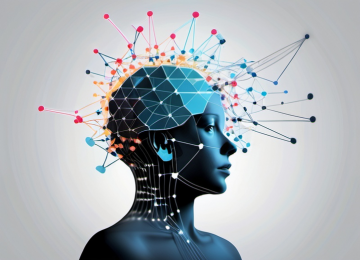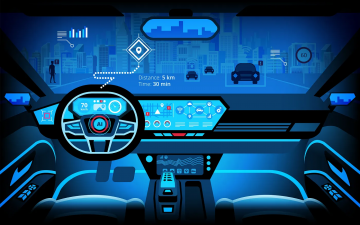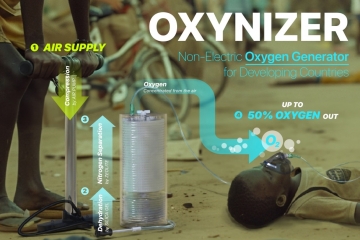KAIST
BREAKTHROUGHS
Research Webzine of the KAIST College of Engineering since 2014
Spring 2025 Vol. 24Can AI empower college students to be their own health agent?
Many college students report that they experience varying levels of stress throughout their college experience. Researchers study how an algorithmic stress prediction system can promote mental health for college students suffering from stress and depression.
Article | Fall 2022
One in four Koreans suffers from mental health problems, including stress, depression, and anxiety. Mental wellness at university is a particularly serious concern for students because university typically marks the first time that have lived on their own, but the majority of students report having to cope the challenge of university life.
Professor Hwajung Hong of the Department of Industrial Design and her cross-institutional research team started discussing how we can provide interventions in real time or at the appropriate time so as to help university students overcome the stress they experience possibly for the first time in their lives.
Recent advances in AI technologies have brought significant process to the field of ‘digital health.’ Sensors are embedded in personal connected devices such as smartphones, and wearable devices enable the collection of behavioral data at a more detailed level while reducing the user’s data input burden. Moreover, machine learning technologies can be incorporated to support users’ health behavior changes by extracting insights and patterns from personal data and suggesting proper actions to improve one’s health.
“We believe AI has huge potential for our mental health. Researchers are already finding AI to be useful for predicting stress levels and trying to improve the performances of predictive models, but what we really need to consider is incorporating the AI prediction model into everyday stress management practices for users.” Hong says.
Many existing AI-based mental healthcare systems have mainly focused on improving the accuracy of predictions instead of facilitating user-driven self-insight.
“We think of a stress-management system that can help us gain insight into our current stress state and plan future actions to regulate our stress.” Hong says.
The research team developed MindScope, an algorithm-assisted stress-management system that determines the user’s stress levels and provides explanations based on the user’s everyday activities as captured on their smartphones. Rather than guiding users to accept the model’s prediction result passively, the team attempted to develop ways to empower an individual to be their own health agent through the system. The MindScope system consists of a ML module and a visualization module. The ML module builds a personalized stress prediction model in real time by continuously collecting user-generated data through a smartphone. The visualization module provides users with stress-related information, such as their current stress level and possible stressors. In particular, the visualization module is equipped with a feature that explains how the prediction results were derived based on data about the user’s past activities using the explainable artificial intelligence (XAI) technique.
A 25-day real-world deployment study with 36 college students confirmed that MindScope had an effect on reducing the participants’ stress. The AI-generated stress prediction report could be used as a device to help individuals reminisce on past stress levels and related information by supplementing the user’s subjective reasoning. The research team also proposed exploiting a prediction algorithm for supporting retrospection by users via open-ended algorithmic predictions rather than decisively diagnosing each user’s stress level.
“We want AI to go beyond diagnosing and judging the user’s health states without their involvement. People should be able to use their own experience and knowledge and the assistance of AI together to make informed health decisions to improve their wellbeing,” Hong says.
Meet “MindScope.” It’s an interface, a ML model, and an experiment all in one. MindScope comes from Taewan Kim, a doctoral student in Industrial Design at KAIST, and his advisor Hwajung Hong, an Associate Professor of Industrial Design at KAIST, and his collaborators at KAIST Computer Science, Seoul National University, Hanyang University, Kentech, and CMU, and Professor Sung-Ju Lee, a Professor of Electrical Engineering at KAIST. This research was presented at the ACM Conference on Human Factors in Computing Systems (CHI) of 2022 and funded by the Next-Generation Information Computing Development Program of the National Research Foundation (NRF) led by Professor Uichin Lee, an Professor of Computer Science at KAIST.
MindScope Video: https://youtu.be/cumeib06yhQ
Most Popular

When and why do graph neural networks become powerful?
Read more
Smart Warnings: LLM-enabled personalized driver assistance
Read more
Extending the lifespan of next-generation lithium metal batteries with water
Read more
Professor Ki-Uk Kyung’s research team develops soft shape-morphing actuator capable of rapid 3D transformations
Read more
Oxynizer: Non-electric oxygen generator for developing countries
Read more

